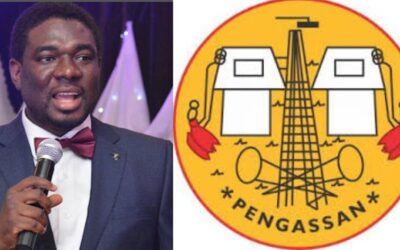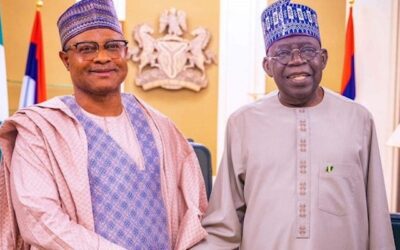1999 Constitution: The Yoruba Summit Group is Wrong
When General Abdulsalami Abubakar came to power in 1998, he set up a Constitutional Review Committee headed by late Honorable Justice Niki Tobi of the Supreme Court, who hailed from the South-South.
The Committee, after touring the country stated in its report that based on the memorandums received, the majority of people in Nigeria were not in support of a full-scale constitutional conference.
The Committee, therefore, decided to limit its recommendations to matters relating to updating the 1979 Constitution in the following key areas:
The additional number of states which were 19 in 1979 to 36 in 1999;
The Federal Character, including the creation of the Federal Character Commission; and
Matters related to increase in population, among other issues
However, after concluding its work, nothing major was amended, removed or added to the 1979 Constitution by the committee. After the promulgation of the amended constitution, Thisday Newspaper commissioned its 3 senior editorial staff to undertake a comparison between the two constitutions.
Read Also: 1999 Constitution: To Change or to Amend?
At the end of the exercise, Simon Kolawale who was among the 3 editors, published a report which he tagged “This Thing Called 1999 Constitution.” He observed that his team conducted a page by page analysis of the two constitutions and concluded that, except for the items updated above, the 1979 and 1999 Constitutions are the same, almost line by line.
The main take-home is that the current 1999 Constitution was an updated version of the 1979 constitution, which was drafted with the full participation of elected and nominated individuals representing different segments of the country.
It also benefitted from the endorsement of our known national leaders of the major ethnic groups, regions and political opinions of the country, including:
Dr Nnamdi Azikwe of the NCNC in the First Republic and NPP leader in 1979;
Chief Obafemi Awolowo of the Action Group (AG) in the First Republic and UPN during Second Republic;
Mallam Aminu Kano of the Northern Elements Progressive Union (NEPU) during the First Republic and PRP in 1979;
Comrade Waziri Ibrahim of NPC and Great Nigerian People Party (GNPP) in 1979.
Chief Joseph Tarka of UMBC of the First Republic and NPN in 1979.
Chief Harold Dappa Bitiye and Chief Milford Okilo of Nigeria Delta Congress (NDC) of First Republic and NPN in 1979.
Read Also: Constitutional Review: The Case for Unicameral Legislature
It is also interesting to note that these leaders who represented different geopolitical zones of the country endorsed the Constitution and virtually all of them contested elections under the 1979 Constitutions which was a product of a military decree.
Among our founding political fathers only Sir Abubakar Tafawa Balewa and Sir Ahmadu Bello the Sardauna of Sokoto who were not alive in 1979. Therefore, it is inaccurate for the Yoruba Summit Group to claim that the 1999 Constitution is “fatally flawed” on the ground that the Constitution was the product of a military decree.


